Key Information
CPD Hours: 16 hours
Course Length: Four weeks
Course Format: A mixture of weekly pre-recorded webinars (which can be reviewed throughout the course), live weekly Q&A sessions with the tutor, self-assessment exercises, supplementary reading material and tutor moderated online discussion forums
Enrol Now
This course may run again in the future. To register your interest please contact us.
Alternatively you can download and email using our Registration Form
Course Information
- The evolution of welfare (definitions, legislation, research)
- Developments in ethology, anthrozoology and animal ethics
- One Health and welfare – lessons from human medicine to improve animal welfare
- Case studies – practical examples of improving animal welfare and suggestions for how they can be adapted and implemented in different contexts and/or for different species
Unfortunately we are unable to run this course in January 2023, to register your interest please email cpd@rvc.ac.uk
Do you want to ensure your patients are provided with optimal conditions that will enable them to thrive? Would you like to know how you can best support patient emotional wellbeing as well as physical health? Would you like a better understanding of animal behaviour and its relationship to welfare?
Traditional approaches to animal welfare focus on the prevention of suffering. However, recent advances in animal welfare science, ethology (animal behaviour), anthrozoology (the study of human animal interactions) and philosophy (specifically animal ethics) have highlighted the cognitive and emotional capacities of many animal species, with implications for welfare. Much progressive research argues that good animal welfare requires a shift away from simply preventing animal suffering and a move towards the promotion of positive, pleasurable experiences and states. When animals are happy they stand a better chance of recovering from illness or injury, or of maintaining good health and wellbeing. While there are many strategies routinely employed by veterinary professionals to help reduce patient stress and promote positive physical and emotional states (e.g. the use of pheromone sprays or the creation of cat friendly areas of the waiting room) there is scope to do much more to cater for the species-specific and individual needs of the diverse array of animal patients encountered in contemporary veterinary practice.
This course aims to provide you with an overview of recent developments in animal welfare science, ethology and anthrozoology (incorporating animal ethics). The course also aims to provide you with an understanding of the relevance of some of these developments for different aspects of veterinary practice. Through the use of illustrative case studies (focussing on, for example, animals in zoos, companion animals, disabled animals, working animals, laboratory animals, equines and livestock) you will be introduced to some of the ways in which animal welfare can be improved in light of this emergent knowledge. These practical examples can then be adapted and implemented to benefit your patients.
Why do this course?
This course aims to provide you with an understanding of what constitutes abuse, and an overview of All veterinary professionals have a duty to protect the wellbeing of the animals in their care. Understanding the relationships between animal behaviour and welfare, and appreciating the different factors that can shape behaviour and impact on welfare (including species-specific and individual needs) means you will be better placed to support your patients.
The webinars for this course will be pre-recorded and can be viewed as recorded versions throughout the course. A live Q&A session with the tutor will run on the following dates at 1pm London time.
Samantha Hurn , PhD
Associate Professor and Programme Director MA and PhD Anthrozoology
University of Exeter
Alexander Badman-King , PhD
Lecturer in Philosophy
University of Exeter
Emily Stone , PhD
Research Associate Anthrozoology
University of Exeter
Fenella Eason, PhD
Associate Lecturer Anthrozoology
University of Exeter
Jessica Gröling, PhD
Associate Lecturer Anthrozoology
University of Exeter
Relevant CPD courses you may find of interest
Webinar Plus: Anthrozoology for veterinary professionals
Webinar Plus: Clinical governance - quality improvement and fostering a supportive practice culture
Webinar: Practising quality-of-life assessment driven small animal medicine
Webinar Plus: Master how to thrive (not just survive) in veterinary practice
Webinar Plus: A coaching approach to line management and leadership in the veterinary workplace
Webinar Plus: Behavioural medicine in general veterinary practice

